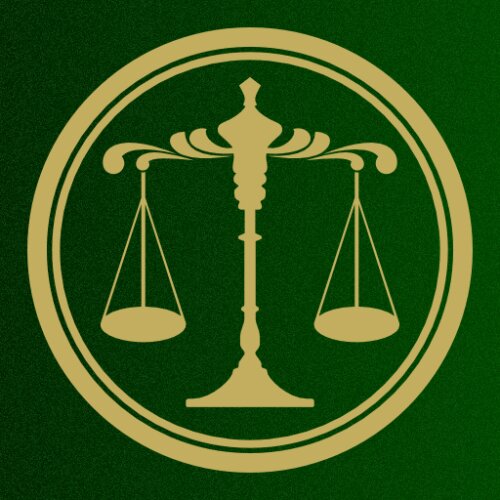Best Admiralty & Maritime Lawyers in Poland
Share your needs with us, get contacted by law firms.
Free. Takes 2 min.
Or refine your search by selecting a city:
List of the best lawyers in Poland
About Admiralty & Maritime Law in Poland
Admiralty and maritime law in Poland governs activities on navigable waters and deals with matters such as shipping, navigation, waters, commerce, and the transportation of goods and passengers. As a country with a Baltic Sea coastline, maritime activities are crucial to Poland's economy, influencing international trade and logistics. The Polish legal framework is influenced by international conventions and European Union regulations, ensuring that maritime operations adhere to global standards and best practices.
Why You May Need a Lawyer
There are several situations where individuals or businesses might require legal assistance in the field of admiralty and maritime law in Poland:
- Disputes involving shipping contracts, including breaches and fulfillment issues.
- Accidents at sea, including collisions, personal injury, or pollution incidents.
- Salvage rights and disputes over the recovery of lost or sunken ships and cargo.
- Maritime insurance claims and disagreements.
- Ship registration, ownership, and mortgage issues.
- Adhering to environmental regulations affecting maritime operations.
- Compliance with international maritime conventions and EU maritime law.
Local Laws Overview
Key aspects of local laws relevant to admiralty and maritime matters in Poland include:
- The Maritime Code of Poland: This is the primary legislation regulating maritime activities, including ship registrations and maritime liabilities.
- Environmental Protection Laws: These regulate pollution and environmental impact related to maritime operations.
- Incorporation of International Conventions: Poland adheres to conventions such as SOLAS (Safety of Life at Sea), MARPOL (Marine Pollution), and others affecting international shipping standards.
- Port Authority Regulations: Local port authorities impose specific rules on port operations and ship movements within Polish territorial waters.
- EU Maritime Regulations: As an EU member state, Poland is subject to various EU regulations improving safety and environmental standards in maritime transport.
Frequently Asked Questions
What is the primary legislation governing maritime operations in Poland?
The Maritime Code of Poland is the primary piece of legislation regulating maritime activities in the country.
Do I need a Polish lawyer for an international shipping dispute?
While it's not always mandatory, having a local lawyer can be beneficial as they are familiar with Polish and EU regulations, which could be pivotal in resolving your dispute effectively.
Can maritime law cover personal injury claims?
Yes, admiralty and maritime law can address personal injuries that occur on navigable waters or in port facilities.
What are the environmental responsibilities for ships operating in Polish waters?
Ships must comply with Polish environmental protection laws, as well as international conventions like MARPOL, to prevent pollution and protect the marine environment.
How does one register a vessel in Poland?
Vessel registration is handled by the Polish Maritime Office, requiring documentation of ownership, tonnage, and compliance with safety standards.
Is Poland bound by international maritime treaties?
Poland is a signatory to numerous international maritime conventions, ensuring compliance with global standards in safety and operations.
What role do port authorities play in maritime law?
Polish port authorities oversee local maritime activities, enforcing regulations on ship operations, port fees, and related logistics within their jurisdictions.
Can disputes over salvage claims be settled in Poland?
Yes, Polish courts can preside over salvage claim disputes, applying both national law and relevant international legal standards.
Are there laws specific to maritime insurance in Poland?
Maritime insurance is governed by various provisions in the Maritime Code, as well as general insurance laws applicable within Poland.
How can maritime pollution cases be addressed?
Cases of maritime pollution are handled under both national environmental laws and international agreements, with potential for significant penalties and required remediation efforts.
Additional Resources
For further assistance, consider consulting the following resources:
- Ministry of Maritime Economy and Inland Navigation: Provides policies and regulations related to maritime activities.
- Polish Maritime Law Association: Offers guidance and support on maritime legal matters.
- Baltic and International Maritime Council (BIMCO): Global organization offering standard maritime contracts and documentation.
- Polish Seaport Authorities: Regional authorities managing port-specific regulations and operations.
Next Steps
If you require legal assistance in admiralty and maritime law in Poland, consider following these steps:
- Consult a Specialist Lawyer: Seek an attorney specializing in maritime law early on to navigate the complexities of your case.
- Gather Relevant Documentation: Collect any pertinent documents, contracts, or correspondence related to your case.
- Conduct Preliminary Research: Familiarize yourself with key legal terms and local regulations applicable to your situation.
- Schedule a Legal Consultation: Arrange a meeting with a maritime lawyer to discuss your issues and explore possible legal remedies.
- Engage with Professional Associations: Reach out to maritime law associations for additional guidance and resources.
Lawzana helps you find the best lawyers and law firms in Poland through a curated and pre-screened list of qualified legal professionals. Our platform offers rankings and detailed profiles of attorneys and law firms, allowing you to compare based on practice areas, including Admiralty & Maritime, experience, and client feedback.
Each profile includes a description of the firm's areas of practice, client reviews, team members and partners, year of establishment, spoken languages, office locations, contact information, social media presence, and any published articles or resources. Most firms on our platform speak English and are experienced in both local and international legal matters.
Get a quote from top-rated law firms in Poland — quickly, securely, and without unnecessary hassle.
Disclaimer:
The information provided on this page is for general informational purposes only and does not constitute legal advice. While we strive to ensure the accuracy and relevance of the content, legal information may change over time, and interpretations of the law can vary. You should always consult with a qualified legal professional for advice specific to your situation.
We disclaim all liability for actions taken or not taken based on the content of this page. If you believe any information is incorrect or outdated, please contact us, and we will review and update it where appropriate.
Browse admiralty & maritime law firms by city in Poland
Refine your search by selecting a city.

















